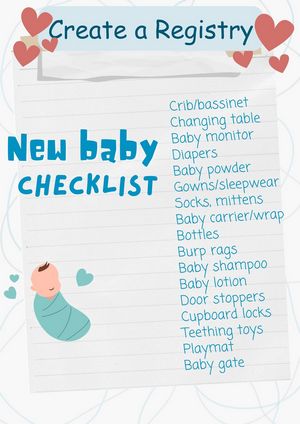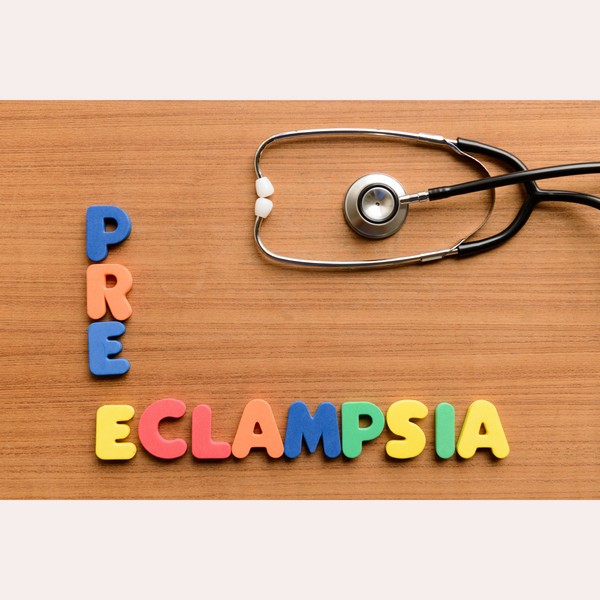Key Takeaways
- Postpartum recovery can take weeks or months depending on the type of birth.
- Physical recovery includes managing pain, bleeding, and any tearing or incision care.
- Emotional recovery is important, with many mothers experiencing mood swings or baby blues.
- Support from family, friends, and healthcare professionals helps smooth the recovery process.
- Rest, hydration, and a nutrient-rich diet are essential for healing and adjusting to new motherhood.
Introduction

The postpartum period, also known as the “fourth trimester,” refers to the weeks and months following childbirth.
This is a time of significant physical healing, emotional adjustment, and adapting to life with a newborn.
Understanding what to expect during postpartum recovery can help you feel more prepared for the challenges and joys that come with it.
Physical Recovery After Natural Birth
Vaginal Healing and Perineal Care
After a vaginal delivery, you may experience perineal pain or discomfort, especially if there were tears or an episiotomy.
Swelling and soreness in the perineal area are common in the first few days.
Tips for Perineal Care:
- Use ice packs to reduce swelling and discomfort.
- Take sitz baths (warm water baths for the perineum) to soothe soreness.
- Use witch hazel pads or sprays to help with pain and healing.
Postpartum Bleeding (Lochia)
Postpartum bleeding, known as lochia, is normal after delivery. It starts as heavy bleeding similar to a period and gradually tapers off over a few weeks.
What to Expect:
- Heavy bleeding for the first few days, with clots smaller than a golf ball.
- Gradual lightening of the flow to pink or brownish discharge over the following weeks.
- Contact your doctor if you notice excessive bleeding, large clots, or foul-smelling discharge.
Dealing with Fatigue

Lack of sleep and the physical toll of labor can lead to extreme fatigue in the days and weeks after birth. New mothers often find it challenging to rest due to the demands of caring for a newborn.
Managing Fatigue:
- Sleep when the baby sleeps, even if it’s just short naps.
- Accept help from family or friends to give yourself time to rest.
- Avoid overexertion, especially in the first few weeks after birth.
Physical Recovery After a C-Section
Incision Care
C-sections involve a longer recovery time compared to vaginal births due to the surgical nature of the procedure. Managing your incision properly is needed to prevent infection and ensure proper healing.
Incision Care Tips:
- Keep the area clean and dry; follow your doctor’s instructions for cleaning the incision.
- Watch for signs of infection, such as redness, swelling, or pus.
- Avoid heavy lifting and strenuous activities until cleared by your doctor.
Managing Post-Surgery Pain
Pain management is important in the first few days after a C-section. Your doctor will prescribe pain relief medications, and you can also use gentle movement to aid recovery.
Tips for Managing Pain:
- Take prescribed pain medications on time to avoid discomfort.
- Slowly introduce movement, like walking around your home, to promote circulation and prevent blood clots.
- Wear supportive clothing like a postpartum belly band to help with incision discomfort.
Emotional Recovery and Mental Health

Baby Blues vs. Postpartum Depression
After childbirth, it’s common to experience mood swings, irritability, or bouts of crying due to hormonal changes.
This is often referred to as the “baby blues” and typically resolves within two weeks. However, some women may develop postpartum depression, a more serious condition that requires professional support.
Recognizing Postpartum Depression:
- Persistent feelings of sadness or hopelessness.
- Lack of interest in your baby or feeling disconnected.
- Difficulty sleeping or eating, even when your baby is resting.
Seeking Support
Whether you’re dealing with baby blues or postpartum depression, emotional support is crucial.
Talk to your partner, friends, or a counselor if you’re struggling. Joining a postpartum support group can also help you connect with others experiencing similar challenges.
Breastfeeding and Nutrition

Breastfeeding Challenges
While breastfeeding is natural, it isn’t always easy. Many new mothers experience difficulties with latching, nipple soreness, or milk supply issues.
Tips for Breastfeeding Success:
- Seek advice from a lactation consultant if you’re having trouble with latching or milk supply.
- Ensure proper hydration and nutrient intake to support milk production.
- Try different breastfeeding positions to find what works best for you and your baby.
Nutritional Needs for Recovery
Your body needs extra nutrients to heal after childbirth and to support breastfeeding. Focus on eating a balanced diet rich in complete proteins, healthy fats, minerals, and vitamins.
Having good levels of Magnesium and Omega 3 in particular can support beneficial results.
Foods to Support Recovery:
- High Quality proteins like Beef, Seafood, and Eggs to help tissue repair.
- Healthy fats such as Cod Liver Oil, Ghee, Butter, and Tallow to boost energy.
Building a Support System

Help from Partner, Family, or Friends
In the postpartum period, it’s essential to have a strong support system. Don’t hesitate to ask for help with cooking, cleaning, or caring for your baby.
Your partner, family members, or friends can also provide emotional support during this time.
Hiring a Postpartum Doula
A postpartum doula can provide professional support in the first few weeks or months after childbirth.
Doulas help with newborn care, household tasks, and emotional recovery, easing the transition into new parenthood.
Conclusion
Postpartum recovery is a time of physical healing, emotional adjustment, and bonding with your new baby. While recovery can vary depending on the type of birth, it’s important to rest, nourish your body, and lean on your support system. Whether you’re recovering from a natural birth or a C-section, patience and self-care are key to a smooth transition into motherhood.
FAQs
How long does postpartum recovery take?
Recovery varies, but most women feel significantly better after 6-8 weeks. C-section recovery may take longer, around 8-12 weeks.
What are the signs of postpartum depression?
Symptoms include prolonged sadness, hopelessness, trouble bonding with your baby, and changes in sleeping or eating habits. Seek medical help if you experience these signs.
How can I manage postpartum bleeding?
Postpartum bleeding is normal and should gradually decrease over time. Using maternity pads and resting can help. Contact your doctor if the bleeding is heavy or lasts longer than expected.
What foods help with postpartum recovery?
Focus on lean proteins, healthy fats, fruits, and vegetables. Staying hydrated and eating nutrient-dense foods can help with tissue repair and energy.
When should I seek medical help during postpartum recovery?
Contact your healthcare provider if you experience excessive bleeding, severe pain, signs of infection, or symptoms of postpartum depression.
Research
Anon. 2015. Heterogeneity of postpartum depression: a latent class analysis. The Lancet Psychiatry, [online] 2(1), pp.59–67. https://doi.org/10.1016/s2215-0366(14)00055-8.
Beck, Cheryl Tatano. Predictors of Postpartum Depression: An Update. Nursing Research 50(5):p 275-285, September 2001.
Bradley, H.A., Moltchanova, E., Mulder, R.T., Dixon, L., Henderson, J. and Rucklidge, J.J., 2024. Efficacy and safety of a mineral and vitamin treatment on symptoms of antenatal depression: 12-week fully blinded randomised placebo-controlled trial (NUTRIMUM). BJPsych Open, 10(4). https://doi.org/10.1192/bjo.2024.706.
Eby, G.A. and Eby, K.L., 2006. Rapid recovery from major depression using magnesium treatment. Medical Hypotheses, 67(2), pp.362–370. https://doi.org/10.1016/j.mehy.2006.01.047.
Edalati-Fard, F., Mirghafourvand, M., Mohammad-Alizadeh-Charandabi, S. and Farshbaf-Khalili, A., 2016. Relationship of Zinc and Magnesium Serum Levels with Postpartum Depression in Tabriz-Iran. Global Journal of Health Science, 8(11), p.120. https://doi.org/10.5539/gjhs.v8n11p120.
Etebary, S., Nikseresht, S., Sadeghipour, H.R. and Zarrindast, M.R., 2010. Postpartum Depression and Role of Serum Trace Elements. Iranian Journal of Psychiatry, 5(2), pp.40-46. https://www.ncbi.nlm.nih.gov/pmc/articles/PMC3430492/.
Gastaldon, C., Solmi, M., Correll, C.U., Barbui, C. and Schoretsanitis, G., 2022. Risk factors of postpartum depression and depressive symptoms: umbrella review of current evidence from systematic reviews and meta-analyses of observational studies. The British Journal of Psychiatry, 221(4), pp.591–602. https://doi.org/10.1192/bjp.2021.222.
G., H., Cassel, F., Duijts, L., Muckenthaler, M. U., Gassmann, M., Jaddoe, V. W., Reiss, I. K., & Vermeulen, M. J. Maternal Iron Status in Pregnancy and Child Health Outcomes after Birth: A Systematic Review and Meta-Analysis. Nutrients, 13(7), 2221. https://doi.org/10.3390/nu13072221
Goodman, J. H. (2004). Postpartum Depression Beyond the Early Postpartum Period. Journal of Obstetric, Gynecologic, & Neonatal Nursing, 33(4), 410-420. https://doi.org/10.1177/0884217504266915
Hajhashemy, Z., Shirani, F. and Askari, G., 2024. Dietary Magnesium Intake in Relation to Depression in Adults: A GRADE-Assessed Systematic Review and Dose–Response Meta-analysis of Epidemiologic Studies. Nutrition Reviews. https://doi.org/10.1093/nutrit/nuae056.
Moabedi, M., Aliakbari, M., Erfanian, S. and Milajerdi, A., 2023. Magnesium supplementation beneficially affects depression in adults with depressive disorder: a systematic review and meta-analysis of randomized clinical trials. Frontiers in Psychiatry, 14. https://doi.org/10.3389/fpsyt.2023.1333261.
Mocking, R.J.T., Steijn, K., Roos, C., Assies, J., Bergink, V., Ruhé, H.G. and Schene, A.H., 2020. Omega-3 Fatty Acid Supplementation for Perinatal Depression. The Journal of Clinical Psychiatry, 81(5). https://doi.org/10.4088/jcp.19r13106.
Nichols, L., 2018. Real Food for Pregnancy: The Science and Wisdom of Optimal Prenatal Nutrition. Lily Nichols.
Pearlstein, T., Howard, M., Salisbury, A., & Zlotnick, C. (2009). Postpartum depression. American Journal of Obstetrics and Gynecology, 200(4), 357-364. https://doi.org/10.1016/j.ajog.2008.11.033
Pourmirzaiee, M.A., Daniali, S.S., Riahi, R., Majidi, S. and Kelishadi, R., 2024. Association of Postpartum Depression with Maternal Serum Magnesium Levels, Infant Growth, and Neurodevelopmental Indices. International Journal of Preventive Medicine, 15. https://doi.org/10.4103/ijpvm.ijpvm_30_24.
Rupanagunta, G.P., Nandave, M., Rawat, D., Upadhyay, J., Rashid, S. and Ansari, M.N., 2023. Postpartum depression: aetiology, pathogenesis and the role of nutrients and dietary supplements in prevention and management. Saudi Pharmaceutical Journal, [online] 31(7), pp.1274–1293.
https://www.sciencedirect.com/science/article/pii/S1319016423001275
Sajjadi, S.S., Foshati, S., Haddadian-Khouzani, S. and Rouhani, M.H., 2022. The role of selenium in depression: a systematic review and meta-analysis of human observational and interventional studies. Scientific Reports, 12(1). https://doi.org/10.1038/s41598-022-05078-1.
Wang, H., Jin, M., Xie, M., Yang, Y., Xue, F., Li, W., Zhang, M., Li, Z., Li, X., Jia, N., Liu, Y., Cui, X., Hu, G., Dong, L., Wang, G. and Yu, Q., 2023. Protective role of antioxidant supplementation for depression and anxiety: A meta-analysis of randomized clinical trials. Journal of Affective Disorders, [online] 323, pp.264–279.
https://doi.org/10.1016/j.jad.2022.11.072.
Zadehdarvish, F., Kesmati, M., Khajehpour, L. and Torabi, M., 2019. Effects of magnesium oxide nanoparticles on memory impairment induced by postpartum depression model. Physiology and Pharmacology, [online] pp.63–73.
https://doi.org/10.32598/ppj.24.1.80.
Zhang, M.-M., Zou, Y., Li, S.-M., Wang, L., Sun, Y.-H., Shi, L., Lu, L., Bao, Y.-P. and Li, S.-X., 2020. The efficacy and safety of omega-3 fatty acids on depressive symptoms in perinatal women: a meta-analysis of randomized placebo-controlled trials. Translational Psychiatry, 10(1). https://doi.org/10.1038/s41398-020-00886-3.
Breast Milk or Formula: Which Is Healthier for Your Baby?
Key Highlights Breast milk is ideal for infants, offering essential nutrients, cognitive development support, and immune strengthening. Breastfeeding benefits both baby and mother, reducing the…
Pre-Eclampsia: Causes, Symptoms, and Treatment
Key Takeaways Pre-eclampsia involves high blood pressure and organ damage after 20 weeks of pregnancy. Early diagnosis through regular prenatal care is vital for managing…
What is the Best Nutrition for Pregnancy?
Key Takeaways Eating wisely during pregnancy impacts maternal and fetal health. Prioritize foods with a high bioavailability of nutrients. Essential fatty acids support brain and…
Birth Plan Guide: Planning Your Birth Experience
Key Takeaways A birth plan outlines your preferences for labor, delivery, and postpartum care. It helps communicate your wishes to your healthcare team. Flexibility is…
Childbirth Preparation: Steps for a Smooth Delivery
Key Takeaways Having a solid support system can ease the physical and emotional challenges of labor. Proper nutrition and regular exercise prepare your body for…
Natural Childbirth: Pain Management & Breathing
Key Takeaways Natural childbirth focuses on managing labor without medical interventions. Breathing techniques help alleviate pain and keep the body relaxed. Movement, positioning, and hydrotherapy…
9 Vital Travel Tips for Pregnant Women
Key Takeaways Consult Your Doctor: Always discuss travel plans with your healthcare provider to ensure safety throughout your pregnancy. Pack Smart: Essential items for pregnant…
Gestational Diabetes Management: Expert Tips for Success
Key Highlights Gestational diabetes, marked by glucose intolerance during pregnancy, requires careful blood sugar control. A healthy pregnancy with gestational diabetes includes regular exercise, a…








